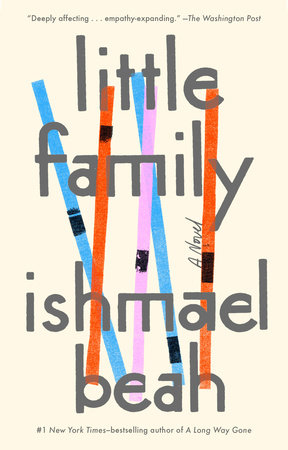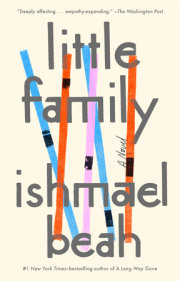1
Kpindi brushed his hands against the low-hanging branches of the tree under which he sat, the morning dew on the leaves moistening his palms. Shivering, he wiped his face, youthful but coarsening, with his wet hands. This attempt to wake eyes that yearned to slumber was not successful. He sat back on his heels and crouch-walked to a shorter tree surrounded by tall grasses, at the junction of the dusty red paths. From this point, he could hear and see from afar anyone who approached, with plenty of time to decide how to react.
Satisfied with his line of sight, he stretched his bony frame, his rib cage drawing away from his long belly, and sat erect, with an unreadable stare calculated to inspire fear, curiosity, and confusion in anyone who happened upon him. Such an encounter had never occurred, and Kpindi liked it that way. He didn't want to be found. Not by those who were searching for something, in pain or confusion or fear. But even less by the kind of people who bore well-meaning smiles, yet whose eyes betrayed a disregard so habitual that they were no longer conscious of it.
Determined to stay alert, Kpindi concentrated on each of his senses in turn, so that every little whiff of smoke from newly kindled fires where breakfast plantains were frying, every fluttering of a bird in the branches, every whisk of a broom sweeping dried leaves from someone's yard, every bucket that clanked in the grasp of those going to fetch water, pulled him from the grip of slumber.
And then there were footsteps-footsteps that Kpindi did not recognize. He quieted his breathing until it fell beneath the passing breeze.
"She brought me right here every morning, even when she could barely walk." As soon as the next gust of wind shook the grasses, Kpindi hastened to a new hiding place. From this position, he could see the elder whose voice had reached him. She was sitting on a large flat stone, a young woman by her side. Her face, elegantly wrinkled, was lit with memory.
Lost as these two were, in either the joys or the bitterness of the past, Kpindi knew they were no threat. Absently, he pulled a kola nut from the front pocket of his trousers and took a bite, to keep himself awake and steady. The smell of the nut, and the familiar ritual of chewing it, brought his grandmother to mind-his grandmother with her constant joking, no matter how unhappy life had been back then. It was sweet to remember her face. He took another bite of the kola nut, keeping his eyes on the two women.
"Ah, never mind how you came into this world," his grandmother used to say. "You were brought here to live. So live!" And that was all he could ever get out of her.
The wind had dropped, and in the quiet, every sound was amplified. It seemed to Kpindi that his ears were vibrating. From his spot under the bushes, he imagined a context for each noise that reached his ears, a favorite pastime. Sometimes he would spend three or four hours on watch this way. Just then he heard a shriek, followed by a burst of laughter. He imagined the sounds as coming from a house nearby, where a father was getting ready for the day. His wife and five children had showered first, using up all the hot water, so that when it was his turn in the bathroom, cold water struck his body, and he shrieked. "Why must I suffer like this every morning?" he cried, as he did every morning. And the whole family, their faces smooth with Vaseline, the children in their school uniforms and their mother stylishly dressed to go run her waterfront store, joked and chatted as they did every morning too.
Was this a family he remembered, or a family he only imagined? Kpindi wasn't sure. He waited for the next sound to reach him, ready to dream up a fresh scenario.
The elderly woman stood up with surprising agility and began walking back toward town. The young woman looked around, but her gaze passed over Kpindi and went to the sky, and then she followed her companion. No need to warn the others, he decided.
Noises from the market were filling the air. The day had begun. As he rose to embrace the morning, the wind slapped a few leaves against Kpindi's face. Just then he heard the secret whistle. King's property, king's property, everything is correct.
He answered in turn. King's property, king's property, everything is correct.
2
Usually Khoudiemata made her visits to the market between dawn and the first appearance of the sun. There was a pause that came at this hour, a sigh, when the waking had to decide whether to spend their day being useful or being destructive. Raffia bag slung over her shoulder, beanie on her head, this bright-eyed young woman of eighteen with smooth, sharp cheekbones chose to remain suspended between the two, as her circumstances dictated.
Besides, she was drawn to the hidden beauty of this dilapidated place, which painted over whatever bad memories troubled her mind with the simple and intriguing brushstrokes of all that was on display. She glided among the traders, listening and watching as they called out to the passersby, letting them know what they wanted, what was essential for them to purchase. Madam, I have a special gift for your lovely daughter. Or Mister, don't you want to go home with a gift that says what doesn't exist in words? I have just that for you. The merchants had sweet words for almost everyone, but when Khoudiemata passed before them, they said nothing. It was as if she did not exist. She was not invisible-people's eyes caught sight of her-but somehow, she was forgotten as soon as she was glimpsed.
Khoudi did not mind. Because of her invisibility, people spoke honestly around her about their fears, hopes, and dreams. Sometimes she picked up important information that way, information that made it possible to continue to live at the edge of the lives of such people. Some mornings, she simply lingered upon their faces, living in the emotions that they wore-some exceptionally happy, some pensive, some unthinkably sad. Imagining their lives helped her to stay suspended between being useful and being destructive, while turning to her advantage everything that happened.
Now she watched as a fruit seller juggled a pinkish-red mango, a yellow pawpaw, and a green guava in the air before setting them on a platter as colorful as her flowered robe. Khoudi took in the glistening red of the palm oil being poured into bottles, the deep green of the cassava and sweet potato leaves that were constantly sprinkled with water so they didn't lose their freshness to the sun, the shiny dark hand that sprinkled the water, the head wraps of the women, so casual yet so elegant, the blue river nearby, the pink sand on its banks. She never tired of the pleasure of letting herself get swept away by such sights, delighted that their delight never grew stale. How could you not find in them some tolerance for whatever life threw at you?
Then the moment of sigh arrived, and this boisterous place seemed to freeze for a moment. The traders stopped mid-sentence, the echo of the last words they had said reverberating in the atmosphere. Their hands paused midway to wiping the sweat from their foreheads, their lips on the verge of bright smiles, their rumpled brows in the act of releasing sorrow. Khoudi created snapshots with her eyes that she could revisit later, when she was in need of something other than her life. Then, before the sigh came to an end, she took whatever food and money her hands could snatch, hid them in her raffia bag, and made her way out of the market.
Normally she would not stop, but today she came upon a strange sight. A man was sitting on the ground wearing khaki shorts, a long-sleeved white shirt, brown boots, and a brimmed khaki hat. He looked like one of those white men in the books she had read back when she was a schoolgirl, when she was living with that family who had let her stay with them awhile. She pushed the memory aside and concentrated instead on the image that came to mind, from one of those long-forgotten books. There were always photos of those white men standing in the bow of a boat, rowed by a man so shiningly dark that he became the only point of intensity in the photo. In each photograph, the boat seemed to be heading up or down a river, to discover what, she did not understand, then or now. Anyway, this man was not white, but he looked just as out of place. He was looking at an old map of Foloiya, which was itself strange, because no one around here was in the habit of looking to some piece of paper to help them understand the very land they stood upon. The map was flapping against the man's hand in the breeze, as if it wanted to fly away, knowing it had no use. How could an old map help you find your way in a place that shifted constantly, like the direction of the wind?
The man paused, waving her near without looking up. She hesitated, but his demeanor held none of the menace she was used to encountering in men toward young women like her.
"Do you know where this house is?" He extended the map to her, pointing at the far end. "I have covered everywhere except this last place." He kept his gaze on the map, his eyes searching it for an answer as it fluttered even more violently in the wind.
"That house is no longer there. It fell with the last rains," Khoudi told him with certainty.
"That explains it." He took a red pen from a chest pocket that was lined with other pens of various colors and crossed out the indicated location of the offending house. Then he began to fold the map with what seemed like excessive care. "Do you know where the people who lived there went?"
A car with tinted windows and fancy tires, too sleek for the landscape, zigzagged its way along the road, trying and failing to avoid the potholes. The confused fellow stood and saluted, which amused Khoudiemata, who had caught the insignia. It was not a government car.
"Why are you saluting? Do you know Rolls-Royce?" she asked, chuckling.
The man didn't answer, but held his salute until the car slowly disappeared down the mangled road. Then he repeated his question. "Do you know where the people who lived there went?"
"Why do you want to know?" Suspicion rose in her even as her instincts told her he was harmless. But harmless people work for wicked bosses, she thought.
"Because I am charged with taking the census. I am doing a thorough count of everyone in this town." He sounded annoyed, and with his index finger he gestured toward his chest and shoulders, indicating that his outfit with its various badges and adornments should have conveyed his importance to her.
"Is that so?" Khoudi stifled the impulse to laugh at how seriously he took himself. She was willing to bet he had not found many houses, or many people willing to come to the door at this early hour. In fact, most had already left, to chase the dreams that no longer came at night.
For the first time, the man looked in her direction, and his eyes went straight through her body as though someone else was standing right behind her. Without saying anything more, he went off in the direction of the house she had told him no longer existed.
Khoudi had long stopped worrying about what people saw or didn't see when they looked at her. Perhaps she was a reminder of the fragility of their own lives. "Don't you want to count me in your census, Mister?" she called after him mockingly, but even his shadow had turned its back on her. She was used to people assuming that someone like her didn't know anything, but she did know one thing for certain: The census meant nothing. It was just another ploy that let those in power pretend that something was being done. Young as she was, she had watched history set its wings and fly off in the wrong direction more than once.
At the end of the open field beyond Foloiya, Khoudiemata counted steps, more with the memory of her muscles than of her head. She cast her eyes about her one last time, then turned left into a wall of bushes. She slid her slender frame beneath them and pulled herself up on the other side, coming face-to-face with a high concrete wall topped with coils of barbed wire. She followed it to the right, stopping at a narrow break. She put her head through first, checking, then stepped through. She wet her lips and whistled the secret phrase to announce her arrival. KingÕs property, kingÕs property, everything is correct. Immediately she got a matching whistle back, with the repeated phrases they had agreed upon, to guard against impostors. Everything is correct, everything is correct.
She recognized Kpindi's distinctive inflection, confirmed when he continued with a melodic question: Anything for us? Anything for us? None of the others did that.
Let's meet at the house. Let's meet at the house, Khoudiemata's whistle replied. Her eyes caught the movement of the grasses as Kpindi made his last rounds.
Jumping over some scattered twigs lest she make any noise, Khoudi landed on the small path, barely body-wide, between the walls of shrubs. This was her path, their path. The other one, wide and easy to find, led people turn by promising turn only back to the crossroads or into town. She and the others had deliberately created these detours to deliver any who sought them right back where they had come.
"Namsa," Khoudi called softly, "you have learned to walk so quietly. I could barely hear your footsteps."
"How did you know I was coming your way, then?" answered the girl, her small voice reaching Khoudi over the wind.
"My nose told me," Khoudi replied.
"How?"
"You always wash yourself with the grass that smells like lemon."
And just as Khoudi heard Namsa sniffing, trying to catch the scent of her own body, she came into view at the bend. The two of them lit up at the sight of each other. Then Namsa placed her arm around the waist of the older girl and looked up at her, her pointed little face not yet even at the height of Khoudi's shoulders. They walked the rest of the way like that, Namsa sometimes skipping, their bodies brushing the branches on either side.
Copyright © 2020 by Ishmael Beah. All rights reserved. No part of this excerpt may be reproduced or reprinted without permission in writing from the publisher.













